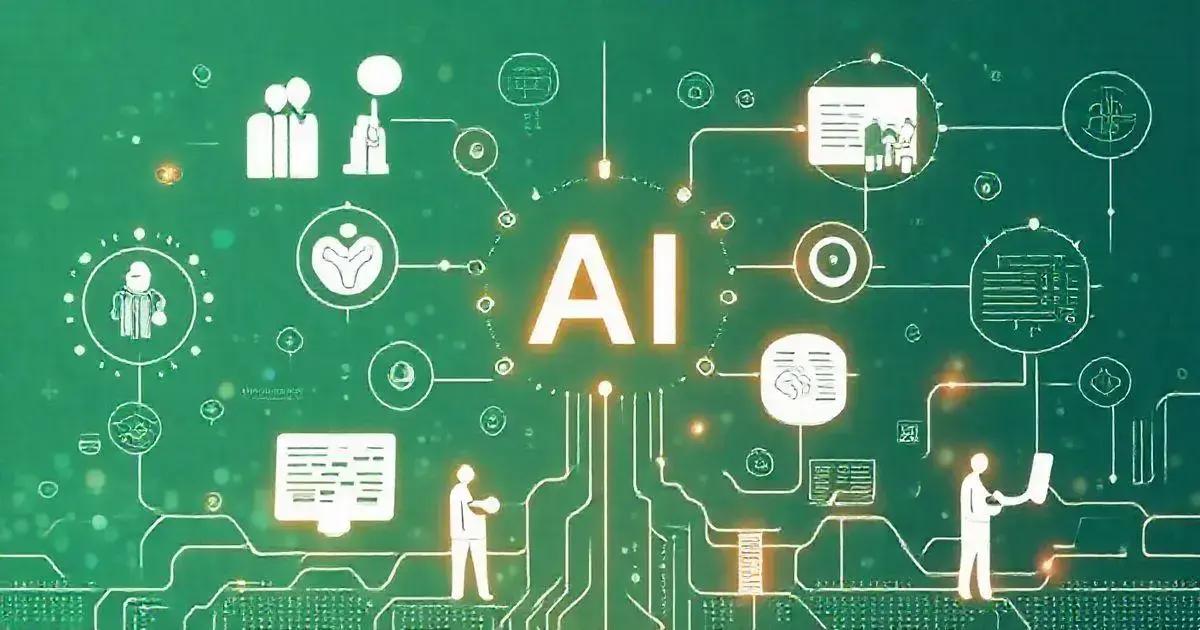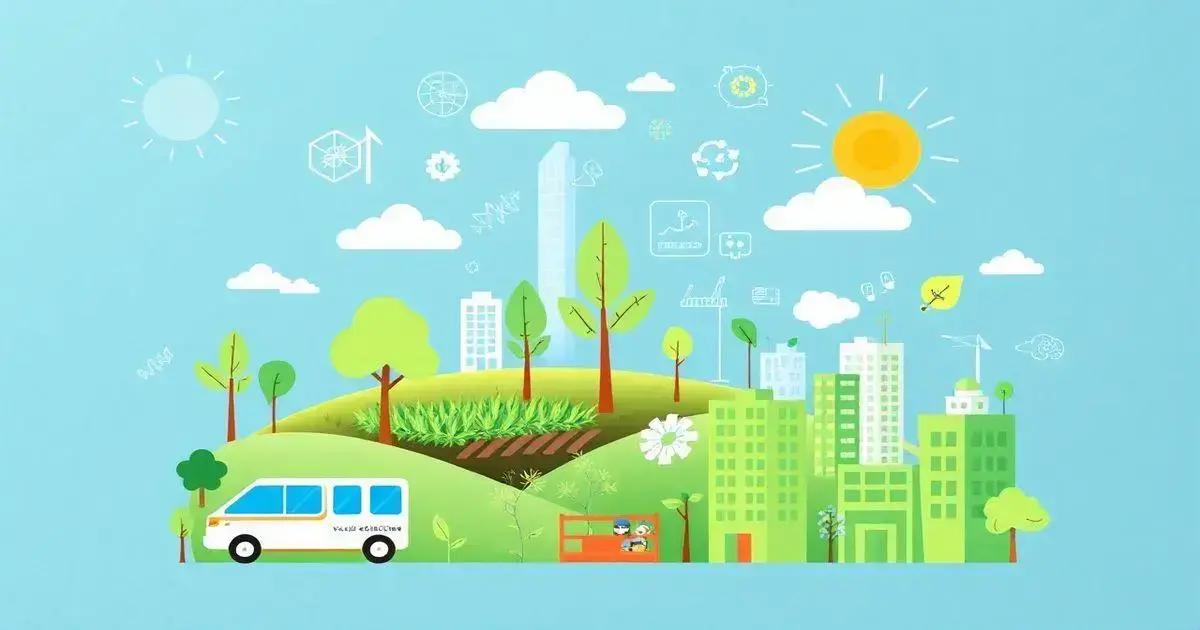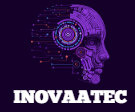Emerging technologie like 5G, IoT, blockchain, and quantum computing are revolutionizing industries and reshaping the way people interact with the world. These advancements drive automation, improve efficiency, and create new opportunities for businesses and consumers alike. As technology evolves, its impact extends across various sectors, from healthcare to finance and beyond.
Smart cities are a prime example of how emerging technologie enhance urban living. IoT-enabled infrastructure improves public safety, optimizes traffic management, and boosts energy efficiency. Meanwhile, blockchain enhances data security and transparency, while quantum computing unlocks new possibilities for problem-solving in complex systems.
How are emerging technologie shaping the future, and what opportunities do they present? Exploring these advancements provides valuable insights into their potential impact and the ways businesses and individuals can prepare for the next wave of innovation.
Understanding Emerging Technologies
Understanding emerging technologies is crucial as they are set to reshape our world. These technologies bring new capabilities, revolutionising sectors like healthcare, finance, and transportation. Technologies such as artificial intelligence, blockchain, quantum computing, and 5G connectivity are at the forefront of this transformation.
Key Characteristics of Emerging Technologies
Emerging technologie generally share a few common traits: they are cutting-edge, have significant growth potential, and can disrupt traditional industries. Their development often involves extensive research and innovation. Additionally, they tend to evolve rapidly, meaning businesses and consumers must stay informed to harness their full potential.
Examples of Emerging Technologies
Among the most notable emerging technologies are:
- Artificial Intelligence (AI): Systems that can learn, analyse data, and perform tasks that typically require human intelligence.
- Blockchain: A secure, decentralised digital ledger that records transactions across multiple computers.
- Quantum Computing: Uses quantum bits to perform calculations at speeds unattainable by classical computers.
- 5G Technology: The latest generation of mobile networks, offering faster speeds and more reliable connections.
The Importance of Adaptation
As these technologies continue to evolve, it’s essential for industries to adapt quickly. Failure to embrace change could result in missed opportunities or becoming obsolete. This process often involves adopting new skills and retraining the workforce to effectively work alongside advanced technologies.
In summary, understanding emerging technologies is not merely an academic exercise but a vital strategy for individuals and businesses alike. Engaging with these technologies can lead to increased efficiencies, enhanced services, and improved overall outcomes across various sectors.
The Role of AI in Future Transformations

The role of Emerging Technologies in future transformations cannot be overstated. AI, as one of the most influential Emerging Technologies, is set to revolutionize industries, enhance efficiency, and reshape the way we live and work. With advancements in machine learning, natural language processing, and robotics, AI is becoming an integral part of every sector, driving unprecedented innovation.
Enhancing Efficiency Through Automation
AI automates repetitive tasks, allowing humans to focus on more strategic activities. This shift not only increases productivity but also reduces human error. As one of the key Emerging Technologies, AI-powered customer service chatbots and robotic process automation streamline operations, freeing up employees for complex decision-making.
Informed Decision-Making with Data Analysis
Another critical role of AI in Emerging Technologies is its ability to process vast datasets quickly, uncovering insights that drive better decision-making. Businesses leveraging AI analytics can identify trends and patterns that remain hidden in manual analysis, gaining a competitive edge in data-driven industries.
Personalization in Services and Products
AI enhances personalization by analyzing user behaviors and preferences. As one of the most impactful Emerging Technologies, AI-driven customization in e-commerce, entertainment, and marketing significantly improves customer satisfaction and brand loyalty.
AI in Healthcare Innovations
In healthcare, AI-driven Emerging Technologies are transforming patient care through predictive analytics, virtual assistants, and diagnostic tools. AI algorithms analyzing medical imaging enable early disease detection, saving lives and reducing healthcare costs.
The Need for Ethical Considerations
As AI advances, ethical concerns surrounding data privacy, security, and algorithmic bias must be addressed. Governments and organizations must establish regulatory frameworks to ensure Emerging Technologies like AI are deployed responsibly and transparently.
Education and Workforce Development
To harness the potential of Emerging Technologies, workforce education and development are essential. Upskilling employees in AI and related fields ensures readiness for future job markets. Integrating AI literacy into education systems prepares students for careers in evolving technological landscapes.
What other Emerging Technologies are set to shape the future, and how can businesses and individuals prepare for these transformations? Exploring the latest advancements will provide valuable insights into the next era of innovation.
Blockchain’s Impact on Various Sectors
Blockchain technology is making waves across various sectors. Its ability to provide secure, transparent, and tamper-proof data makes it valuable in today’s digital age. By decentralising transactions, blockchain eliminates intermediaries, streamlining processes and enhancing trust among participants.
Finance and Banking
In the finance sector, blockchain offers a secure method for transactions. It enables quicker cross-border payments by reducing the time and cost associated with traditional banking methods. Moreover, blockchain technology enhances the security of online transactions, reducing fraud risk.
Supply Chain Management
Blockchain’s impact on supply chain management is transformative. It allows for real-time tracking of products, increasing transparency in logistics. Each step of the product journey can be recorded on the blockchain, providing detailed provenance information. This transparency helps companies ensure ethical sourcing and compliance with regulations.
Healthcare Applications
In healthcare, blockchain improves patient data management. It allows secure sharing of medical records between different healthcare providers. This ensures that all parties have accurate and up-to-date information, which is essential for effective treatment. Additionally, blockchain can enhance the traceability of pharmaceuticals, combating counterfeit drugs.
Real Estate Transactions
Real estate is another sector benefiting from blockchain technology. It simplifies property transactions by recording ownership on a blockchain. This reduces the need for time-consuming paperwork and lowers transaction costs. Smart contracts can automate processes, ensuring escrow conditions are fulfilled without intermediaries.
Voting Systems
Blockchain also has the potential to revolutionise voting systems. By securing votes on a blockchain, it increases transparency and accountability in elections. This technology can help eliminate voter fraud and encourage higher participation by making the voting process more accessible.
Energy Sector Innovations
In the energy sector, blockchain enables peer-to-peer energy trading. Consumers can trade excess energy generated from renewable sources with each other, increasing efficiency and reducing reliance on large energy companies. This promotes sustainability and lowers carbon footprints.
Overall, the impact of blockchain on various sectors is profound and far-reaching. As this technology continues to evolve, it has the potential to reshape industries and improve the way businesses operate.
The Rise of Quantum Computing

The rise of quantum computing is an exciting development in the field of technology. Quantum computers utilise the principles of quantum mechanics to process information in ways that traditional computers cannot. This unique approach allows them to solve complex problems at unprecedented speeds.
What is Quantum Computing?
Quantum computing relies on quantum bits, or qubits, which can exist in multiple states at once. Unlike classical bits, which are either 0 or 1, qubits can be both 0 and 1 simultaneously due to a phenomenon known as superposition. This feature enables quantum computers to handle vast amounts of data and tackle problems that are infeasible for classical computers.
Applications of Quantum Computing
The potential applications for quantum computing are vast and varied. In fields such as pharmaceuticals, quantum computers can simulate molecular interactions, accelerating drug discovery and development. In finance, they can optimise portfolios by analysing numerous variables in real time, leading to better investment strategies.
Quantum Computing and Cryptography
Another exciting aspect of quantum computing is its impact on cryptography. Quantum computers could potentially break traditional encryption methods, leading to a need for new security protocols. Quantum encryption is being developed to create secure communication channels that cannot be intercepted.
Challenges Facing Quantum Computing
Despite its promise, the rise of quantum computing also comes with challenges. Building and maintaining a quantum computer is complex and requires precise environmental control. Furthermore, the technology is still in its infancy, meaning many practical applications are yet to be realised.
Preparing for a Quantum Future
As quantum computing continues to advance, industries must prepare for its introduction. This includes investing in research and the development of new algorithms tailored for quantum systems. Companies that adapt early may gain significant competitive advantages as the technology matures.
The Future of Quantum Computing
In summary, the rise of quantum computing represents a significant leap forward in technology. As research progresses and practical applications emerge, its impact will be felt across various sectors, from healthcare to finance, ushering in a new era of computing capabilities.
5G Technology and Its Implications
5G technology is the fifth generation of wireless network technology, and it promises to revolutionise the way we connect and communicate. It is significantly faster than previous generations, offering download speeds up to 100 times faster than 4G. This increased speed will enhance user experiences in various applications.
Enhanced Connectivity
One of the most exciting implications of 5G technology is its ability to connect many devices simultaneously. With the rise of the Internet of Things (IoT), more devices are coming online than ever before. 5G can support the increasing demand for connectivity, allowing smart devices to operate smoothly and efficiently.
Impact on Businesses
For businesses, 5G technology enables greater productivity and efficiency. Real-time data transfer allows for instant communication and collaboration, no matter where team members are located. This can lead to quicker decision-making processes and the ability to respond to customer needs promptly.
Transforming Industries
Different sectors will benefit immensely from 5G technology. In healthcare, for instance, remote surgeries may become more common, enabled by high-quality video feeds and minimal lag. In transportation, 5G can support the development of autonomous vehicles by ensuring they communicate effectively with each other and road infrastructure.
Smart Cities and Environments
5G technology also plays a crucial role in the creation of smart cities. With highly connected infrastructures, cities can manage resources more efficiently. This can result in improved traffic management, energy consumption, and public safety. Smart streetlights, waste management systems, and public transport solutions will enhance urban living standards.
Challenges and Considerations
Despite its potential, 5G technology comes with challenges. The infrastructure required for 5G networks is extensive, requiring significant investment. Moreover, there are concerns regarding security and privacy, as more devices become connected to the internet.
The Future with 5G
As 5G technology continues to roll out globally, its implications for both individuals and industries are immense. Expect to see innovations that will change the way we live, work, and interact with technology in profound ways.
Sustainable Innovations for Tomorrow

Sustainable innovations for tomorrow are essential in addressing the pressing challenges of climate change and resource depletion. As the world shifts towards sustainability, innovative technologies are emerging that aim to reduce environmental impact and promote cleaner, more efficient practices.
Renewable Energy Technologies
One of the most significant areas of innovation is renewable energy. Solar panels and wind turbines are becoming more efficient and affordable, making clean energy accessible to more people. Advances in energy storage, such as batteries, allow for better integration of renewable sources into the power grid, ensuring a stable energy supply.
Smart Agriculture
Agriculture is also undergoing a transformation with sustainable practices. Precision farming uses sensors and data analytics to optimise crop yields while minimising resource use. Techniques like vertical farming and hydroponics reduce land use and conserve water, offering solutions for urban areas facing food supply challenges.
Waste Management Solutions
Innovative waste management systems are crucial for a sustainable future. Technologies such as anaerobic digestion convert organic waste into biogas, providing renewable energy while reducing landfill waste. Additionally, recycling processes are becoming more efficient, enabling better recovery of materials and reducing the need for virgin resources.
Sustainable Transportation
Transportation systems are being redesigned with sustainability in mind. Electric vehicles (EVs) are gaining popularity, offering a cleaner alternative to traditional petrol and diesel cars. Furthermore, public transport solutions are being enhanced to encourage more people to use shared systems, reducing the carbon footprint associated with personal vehicles.
Green Building Technology
In construction, green building practices are on the rise. Innovations such as energy-efficient materials, smart lighting, and water-saving fixtures are being integrated into new buildings. Additionally, retrofitting older structures with modern technologies can significantly reduce energy consumption and environmental impact.
Circular Economy Initiatives
The concept of a circular economy promotes reusing and recycling materials to extend their lifecycle. Companies are adopting sustainable production methods that incorporate recycled materials, reducing waste and conserving resources. This shift encourages a more sustainable approach to consumption and production.
In summary, embracing sustainable innovations for tomorrow is vital for building a better future. By advancing technology and adopting sustainable practices, we can create a healthier planet for future generations.
Smart Cities and IoT Integration
Smart cities are the future of urban living, integrating technology and data to enhance the quality of life for residents. One key component of smart cities is the Internet of Things (IoT), which connects various devices and systems to streamline city management and improve service delivery.
What is IoT?
The Internet of Things refers to a network of interconnected devices that can communicate and exchange data. This technology allows for real-time monitoring and data collection, enabling cities to make informed decisions and improve their operations.
Benefits of IoT in Smart Cities
Implementing IoT in smart cities offers numerous benefits. For example, smart traffic management systems can monitor vehicle flow and adjust traffic lights accordingly, reducing congestion. Additionally, smart waste management solutions can optimise collection routes based on fill levels, saving time and resources.
Smart Infrastructure
Smart cities incorporate advanced infrastructure that supports IoT integration. Buildings can be equipped with sensors to monitor energy usage and optimise heating and cooling systems. This not only reduces energy consumption but also enhances the comfort of residents.
Public Safety Enhancements
IoT technology significantly improves public safety in smart cities. Surveillance cameras connected to central databases can analyse footage in real time, enhancing law enforcement efficiency. Additionally, connected emergency services can respond faster to incidents, potentially saving lives.
Environmental Monitoring
With IoT devices, cities can monitor environmental factors such as air quality, noise levels, and weather conditions. This data helps city planners implement measures to improve public health and mitigate environmental impact, such as reducing pollution levels or enhancing green spaces.
Community Engagement
IoT fosters a sense of community involvement in smart cities. Residents can engage with city services through mobile apps, reporting issues like potholes or broken streetlights. This interaction encourages civic participation and helps municipal authorities respond effectively to community needs.
In summary, the integration of IoT technology in smart cities is revolutionising urban living. By leveraging data and connectivity, cities can enhance efficiency, improve public services, and create a better quality of life for everyone.
FAQ – Frequently Asked Questions about Emerging Technologies
What is 5G technology and how does it benefit cities?
5G technology is the fifth generation of wireless connectivity that dramatically increases internet speeds and connectivity, enhancing communication and enabling smart city applications.
How does IoT enhance urban living in smart cities?
IoT enhances urban living by connecting various devices and systems, allowing for real-time data collection and improved city management, leading to increased efficiency and quality of life.
What are the key features of smart cities?
Key features of smart cities include smart infrastructure, efficient waste management, improved public safety, real-time traffic management, and environmental monitoring through interconnected sensors.
What are sustainable innovations?
Sustainable innovations refer to new technologies and practices that aim to reduce environmental impact, including renewable energy sources, smart agriculture, and efficient waste management systems.
How can blockchain technology impact various sectors?
Blockchain technology can enhance security, transparency, and efficiency across sectors such as finance, supply chain management, healthcare, and real estate, providing secure and traceable transactions.
What are the benefits of quantum computing?
Quantum computing offers the potential for solving complex problems much faster than classical computers, with applications in fields such as pharmaceuticals, finance, and cryptography.
Check out our article on Fintech Investment to learn how investing in financial technology can open up new opportunities for growth and innovation.
